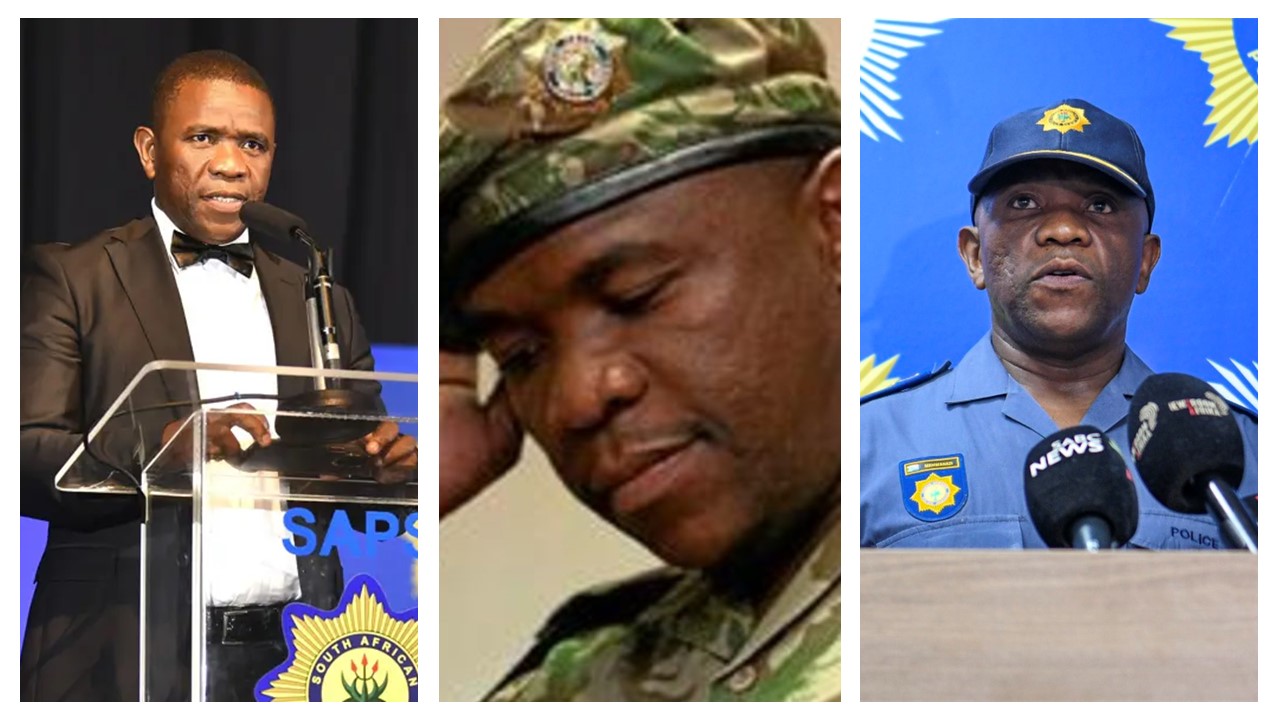The reality is that the vultures hovering over General Mkhwanazi represent more than just him. They symbolise the essence of South Africa itself. It raises the question of our true dedication to justice, fairness, and accountability, or if we will succumb to the shadows of political manipulation and power abuse.
By Themba Khumalo
South Africa, a nation born from the ashes of injustice, finds itself, once again, grappling with the spectre of its past.
But this time, the threat does not come in the form of apartheid’s draconian laws, but rather in the insidious guise of baseless accusations, wielded like blunt instruments against those who dare to uphold the rule of law.
The unfolding drama surrounding General Nhlanhla Mkhwanazi, a highly respected crime fighter, is a stark reminder that even in a democracy, justice can be chillingly compromised, twisted, and shattered to serve the murky agendas of the powerful.
Picture this: a seasoned and decorated policeman, a bloodhound so dedicated to his craft, he probably sleeps with a magnifying glass under his pillow, suddenly finds himself the target of an anonymous smear campaign.
This, in essence, is the treacherous quicksand General Mkhwanazi is currently navigating.
Accusations, like zombies clawing their way out of the grave, have been resurrected from the depths of 2022/23. Their reappearance is timed with an almost cartoonishly suspicious precision to coincide with his intensified investigation into the volatile space of political assassinations in KwaZulu-Natal and beyond.
Coincidence? Please. Even Scooby Doo would raise an eyebrow at this blatant attempt at distraction.
The timing is so screamingly suspicious that it practically requires subtitles. It is a symphony of manipulation conducted in the dead of night, a clandestine performance where truth takes a bow marked “Exit Stage Left.”
You can almost hear the intricate machinery of political manoeuvring grinding to life, powered by paranoia stronger than a double espresso and fueled by enough fear to power a small city.
“He’s getting too close,” whispers a shadowy figure, undoubtedly enveloped in a cloud of expensive cigar smoke and ethical compromises.
“Time to dust off those old allegations and unleash them. Make sure they sting. Extra points for anonymity.”
And just like that, a man’s reputation, painstakingly built upon years of unwavering service, is dragged through the mud, courtesy of an unnamed accuser lurking in the shadows.
It is character assassination carried out with the precision of a brain surgeon, designed to wound, discredit, and ultimately silence. Nothing screams “innocent” like launching anonymous attacks from the comfort and safety of your undisclosed location, probably while petting a fluffy white cat.
This is not a courtroom governed by evidence and due process; it is a kangaroo court, a theatre of whispers, innuendo, and the artful dissemination of misinformation worthy of a Pulitzer Prize in Fiction.
It is a trial by public opinion, where guilt is determined not by cold, hard facts but by the sheer effectiveness of the smear campaign. Forget the scales of justice; we are talking about scales tipped so heavily in favour of whoever can shout the loudest – and most anonymously – that they are practically doing a handstand.
Imagine trying to defend yourself against an opponent you cannot even see! It is like trying to fight smoke – you might land a blow, but it dissipates into nothingness, leaving you coughing and disoriented.
In a just system, accusations demand accountability. They require a face, a name, and the courage to stand behind them. The anonymity granted in this case reeks of political manipulation and cowardice.
The chilling effect is palpable. If a high-ranking official like General Mkhwanazi can be targeted with such impunity, what message does it send to ordinary citizens?
It suggests that speaking truth to power, challenging the status quo, or even just doing your job with unwavering integrity can make you a target. It breeds a climate of fear, where silence becomes the safest option, and justice is merely a distant dream.
The cancelled (and then un-cancelled) march in Durban a week or so ago, organised to show support for General Mkhwanazi, adds another layer of intrigue to this already murky situation. The initial halt, attributed to the supposed cessation of the investigation, followed by the abrupt reversal, smacks of panicked damage control. It is as if someone realised they were about to expose their hand and quickly shuffled the deck.
We often hear the platitude, “Let the law run its course.” But whose law are we talking about? The law that guarantees a fair and impartial investigation, or the law that’s twisted and weaponised by the powerful to silence dissent? Sadly, in this case, the scales seem tipped towards the latter.
It is a sickening irony that a man who has likely sacrificed more for this country than many of the politicians now casting aspersions on his character is being subjected to this blatant injustice.
The truth is, this situation is not just about General Mkhwanazi. It is about the very soul of South Africa. It is about whether we are genuinely committed to the principles of justice, fairness, and accountability, or whether we will allow ourselves to be dragged back into the darkness of political manipulation and abuse of power.
Today it is him, but tomorrow it could be any one of us. We must demand transparency, accountability, and unwavering protection for those who serve the public with integrity. Because if we do not, the chilling effect of these baseless accusations will freeze the very heart of our democracy.


